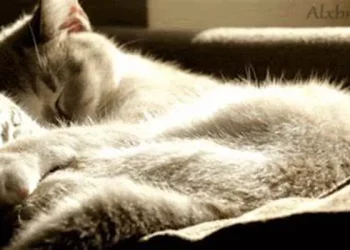On June 2, 2025, Sina Finance uncovered a troubling trend in the pet industry: “cat loans,” where unscrupulous businesses trap consumers in predatory financial schemes under the guise of “free pet adoption.” These operations lure individuals into signing loan contracts disguised as adoption agreements, forcing them to incur debt for cats and subpar supplies, while facing severe penalties and credit risks if things go wrong.
The Trap: From “Adoption” to Forced Debt
Fraudulent pet stores and online platforms entice potential adopters with promises of free cats, only to pressure them into signing complex loan documents. These contracts typically require monthly payments for overpriced pet food, supplies, or “care packages” for 18–24 months, effectively turning adoption into a costly installment plan. Many consumers, misled by vague language, only realize they’ve taken on a loan after signing, with interest rates often exceeding 30% annually.
Adding to the exploitation, sellers frequently provide “week-old pets”—sickly animals likely to fall ill or die within days—lacking proper vaccinations or health checks. Substandard “premium” pet food included in the loans is often expired or nutritionally deficient, exacerbating the animals’ health issues and leaving owners with enormous vet bills.
Financial and Legal Risks
If a cat becomes sick or dies, consumers are still bound by the loan terms. Contracts include harsh penalties for missed payments, such as 20% late fees or automatic debt collection. Worse, some loans are tied to personal credit reports: defaulting can damage credit scores, affecting future ability to rent apartments, secure loans, or even apply for jobs.
“I thought I was saving a cat, but instead, I’m stuck with a ¥15,000 debt and a dead kitten,” says victim Li Wei, who discovered her “adopted” cat had feline parvovirus hours after bringing it home. “The seller refused to refund anything and threatened to report me to credit bureaus.”
Calls for Regulation and Consumer Warnings
The expose has sparked outrage and calls for stricter oversight of pet sales. Animal rights groups urge consumers to adopt from reputable shelters and avoid businesses that pressure them into financial agreements. Legal experts advise reviewing contracts thoroughly, checking for clauses linking payments to credit scores, and reporting suspicious practices to authorities.
In response, China’s Ministry of Commerce has launched an investigation into “cat loan” operations, promising to penalize companies for false advertising and unlicensed lending. “This is a disturbing blend of animal cruelty and financial exploitation,” says lawyer Zhang Min. “Consumers must remember: if adoption requires signing away your financial freedom, it’s not adoption—it’s a scam.”
As the investigation continues, the case serves as a stark reminder: behind every “too good to be true” pet deal may lie a trap designed to profit from compassion. Always adopt from verified sources, read contracts carefully, and never hesitate to walk away from high-pressure sales tactics.
Related Topic:
























